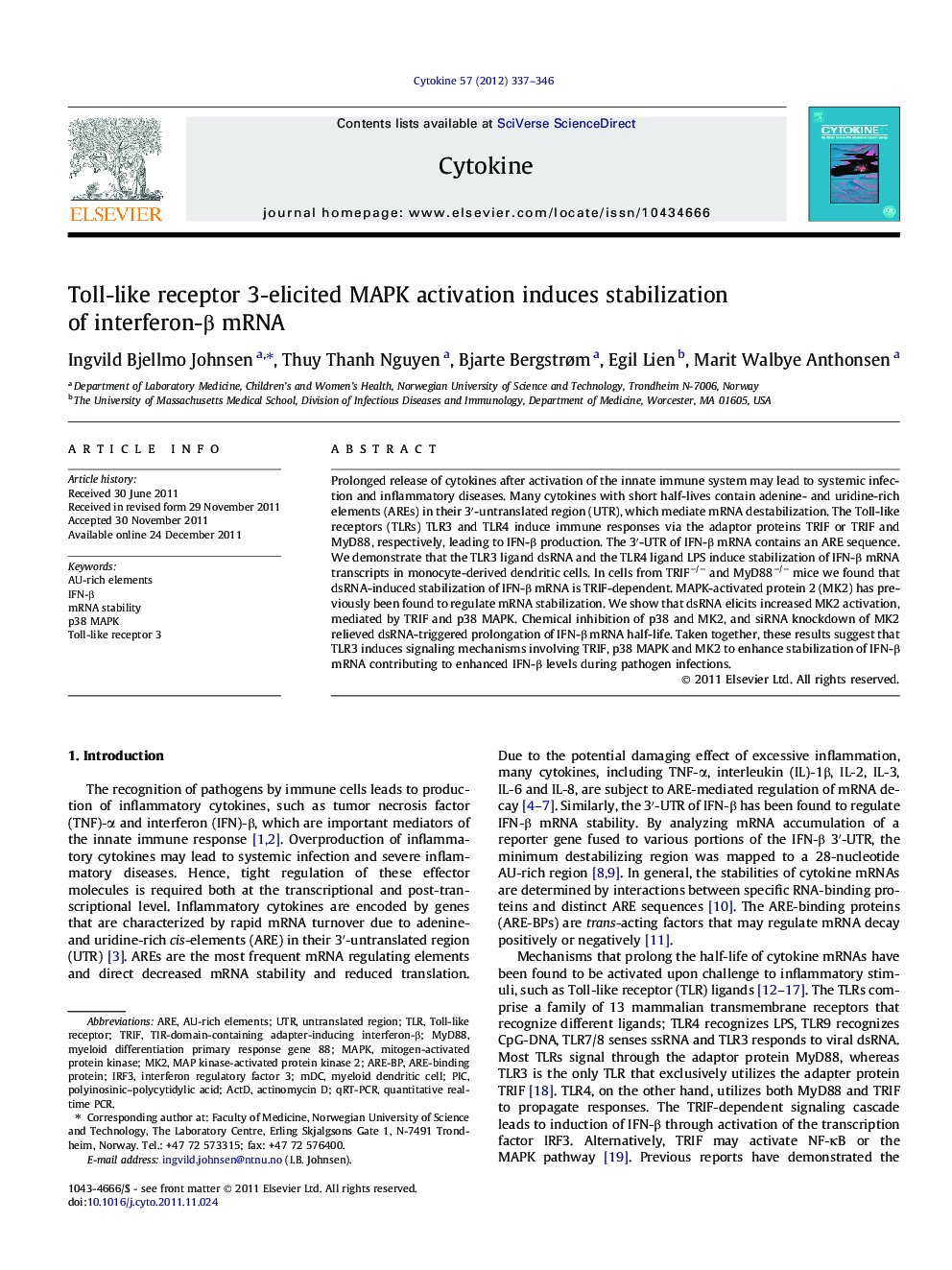| Article ID | Journal | Published Year | Pages | File Type |
|---|---|---|---|---|
| 2794394 | Cytokine | 2012 | 10 Pages |
Prolonged release of cytokines after activation of the innate immune system may lead to systemic infection and inflammatory diseases. Many cytokines with short half-lives contain adenine- and uridine-rich elements (AREs) in their 3′-untranslated region (UTR), which mediate mRNA destabilization. The Toll-like receptors (TLRs) TLR3 and TLR4 induce immune responses via the adaptor proteins TRIF or TRIF and MyD88, respectively, leading to IFN-β production. The 3′-UTR of IFN-β mRNA contains an ARE sequence. We demonstrate that the TLR3 ligand dsRNA and the TLR4 ligand LPS induce stabilization of IFN-β mRNA transcripts in monocyte-derived dendritic cells. In cells from TRIF−/− and MyD88−/− mice we found that dsRNA-induced stabilization of IFN-β mRNA is TRIF-dependent. MAPK-activated protein 2 (MK2) has previously been found to regulate mRNA stabilization. We show that dsRNA elicits increased MK2 activation, mediated by TRIF and p38 MAPK. Chemical inhibition of p38 and MK2, and siRNA knockdown of MK2 relieved dsRNA-triggered prolongation of IFN-β mRNA half-life. Taken together, these results suggest that TLR3 induces signaling mechanisms involving TRIF, p38 MAPK and MK2 to enhance stabilization of IFN-β mRNA contributing to enhanced IFN-β levels during pathogen infections.
► DsRNA induces stabilization of IFN-β mRNA transcripts in mDCs. ► DsRNA-triggered stabilization of IFN-β mRNA is TRIF-dependent. ► Inhibition of p38 and MK2, and MK2 knockdown reduce dsRNA-mediated prolongation of IFN-β mRNA half-life.
